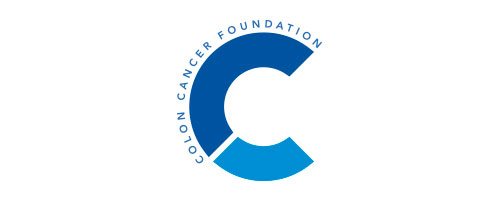Early-Age Onset Colorectal Cancer Summit, Day 1: Don’t Wait Until 50: We all need to talk about colon cancer symptoms and the need for screenings much earlier
We’re not delivering appropriate, evidence-based guideline-driven information about colorectal cancer to people early enough for them to take an appropriate action. We need to start our messaging earlier.” — Whitney Jones, MD, Colon Cancer Prevention Project
With that straight-forward message, Dr. Whitney Jones kicked off the seventh annual Early-Age Onset Colorectal Cancer Summit kicked off on Friday, May 14. The three-day conference, which is being held online because of ongoing Covid-19 precautions, is organized by the Colon Cancer Foundation, a New York-based 501(c)3 non-profit organization dedicated to reducing colorectal cancer incidence and death.
According to the American Cancer Society, colorectal cancer is the third leading cause of cancer-related deaths in men and in women in the U.S., and the second most common cause of cancer deaths when men and women are combined. It’s expected to cause about 52,980 deaths in the U.S. in 2021. The overarching etiology of the disease has not been established; there is no definitive cause of colorectal cancer.
Although the rate of people being diagnosed with colon cancer or rectal cancer each year has dropped overall since the mid-1980s, that’s mainly due to the increased prevalence of people getting screened and reducing lifestyle-related risk factors.
From 2013 to 2017, incidence rates dropped by about 1 percent each year. But that downward trend is mostly in older adults and masks rising incidence among younger adults since at least the mid-1990s. From 2012 through 2016, it increased every year by 2 percent in people younger than 50 and 1 percent in people 50 to 64.
The hypothesis, Jones says, is that under age-50 colon cancer is driving up the overall colorectal cancer incidence rate because healthcare providers and organizations are talking about it to patients too late, particularly in states with the highest colon cancer prevalence.
While it is believed the United States Preventive Task Force (USPSTF) is on the verge of announcing a new recommendation that will lower the age of screening to 45 to 49, Jones, the founder of the Colon Cancer Prevention Project, reinforced the need for primary care physicians, nurses, hospitals, pharmacies, GI surgeons, OB-GYNs and other healthcare providers and organizations to begin communicating to patients much earlier than age 50, which has been the status quo for decades.
In his introductory presentation, titled, “Improving the Earliest Possible Diagnosis and Treatment through Timely Recognition of the Symptoms and Signs of Young Adult Colorectal Cancer,” Jones said earlier messaging and lead time can help change people’s behaviors, especially for individuals with challenging socioeconomic variables or a known high-risk genetic history.
Identifying symptoms, understanding family history and preventative lifestyle modifications are often discussed too late with patients, he said. Even when an individual experiences initial symptoms, because process typically starts so late, there is often a long lag until definitive diagnosis and treatment can occur.
Early messaging needs to begin much earlier — perhaps extending all the way back to the early 20s or even teenage years, he said, especially because 60 percent of early age onset colon cancer cases are sporadic and not related to family history. That, he said, is the only way to go on offense against colon cancer and allow individuals to be proactive, rather than being on defense and forcing patients to be reactive.
“For us to really combat this and make progress in the next 10 years, we don’t need to study first and then act. We need to act on what we know right now. We need more awareness, more messaging. We need patients, hospitals and healthcare providers to get onboard and be aware, and we can simultaneously try to better understand the etiology, do dissemination and implementation research and better use logistics and technology. But we don’t need to wait on action until we have got the research puzzle figured out.”
In addition to Dr. Jones’s introduction, Friday’s kick-off session also included related topics from four other presenters:
– Introduction of the Echo Chamber Challenge and Clinical Alert: Erin Peterson, Director of Mission & Partnerships, Colon Cancer Coalition;
– How will EAO-CRC Incidence and Mortality Rank in 2040? Lola Rahib, PhD, Director of Scientific & Clinical Affairs, Cancer Commons’
– How to Involve Primary Care in Improving Earliest Stage Diagnosis: Len Lichtenfeld, MD, MACP, Former Deputy Chief Medical Officer, American Cancer Society; Board of Trustees, CancerCare;
– and a Colorectal Cancer Patient Story: Lisette Caesar, EdD, Founding Principal, Mosaic Preparatory Academy.
Friday’s events concluded with a virtual cocktail and networking event and a conversation with digital artist Andre’ Oshea, who was commissioned to create an inspirational tribute piece in memory of actor Chadwick Boseman that will be auctioned. Boseman died of colon cancer last year at the age of 43. Proceeds from the auction will benefit the Colon Cancer Foundation.
To watch Friday’s presentations, register for the Early Age Onset Colorectal Cancer Summit and access the recorded program.
On Day 2 on Saturday, May 15, opening remarks will be made by Susan Wysoki, Interim Executive Director, Paltown Development Foundation and Shannon Lee-Sin, a stage IIIc colon cancer survivor. Cindy R. Borassi, EAO-CRC Host and President, Colon Cancer Foundation, will present, “Framing the Conversation: Strategic Challenges in Current Medical Care that Contribute to Young Adult Colorectal Cancer (CRC) Incidence and Mortality,” followed by the keynote address by Stephen B. Gruber, MD, PhD, MPH, Vice President, City of Hope National Medical Center.


Leave a Reply
Want to join the discussion?Feel free to contribute!